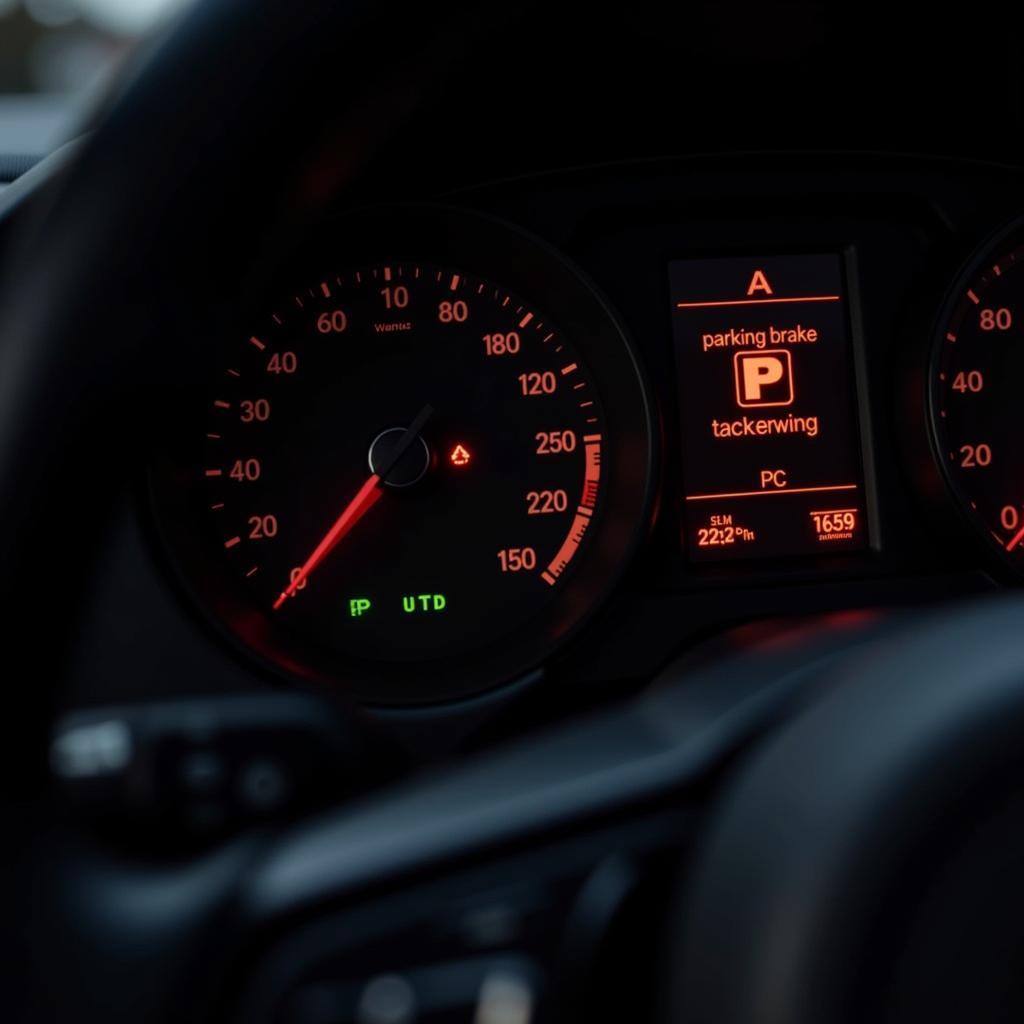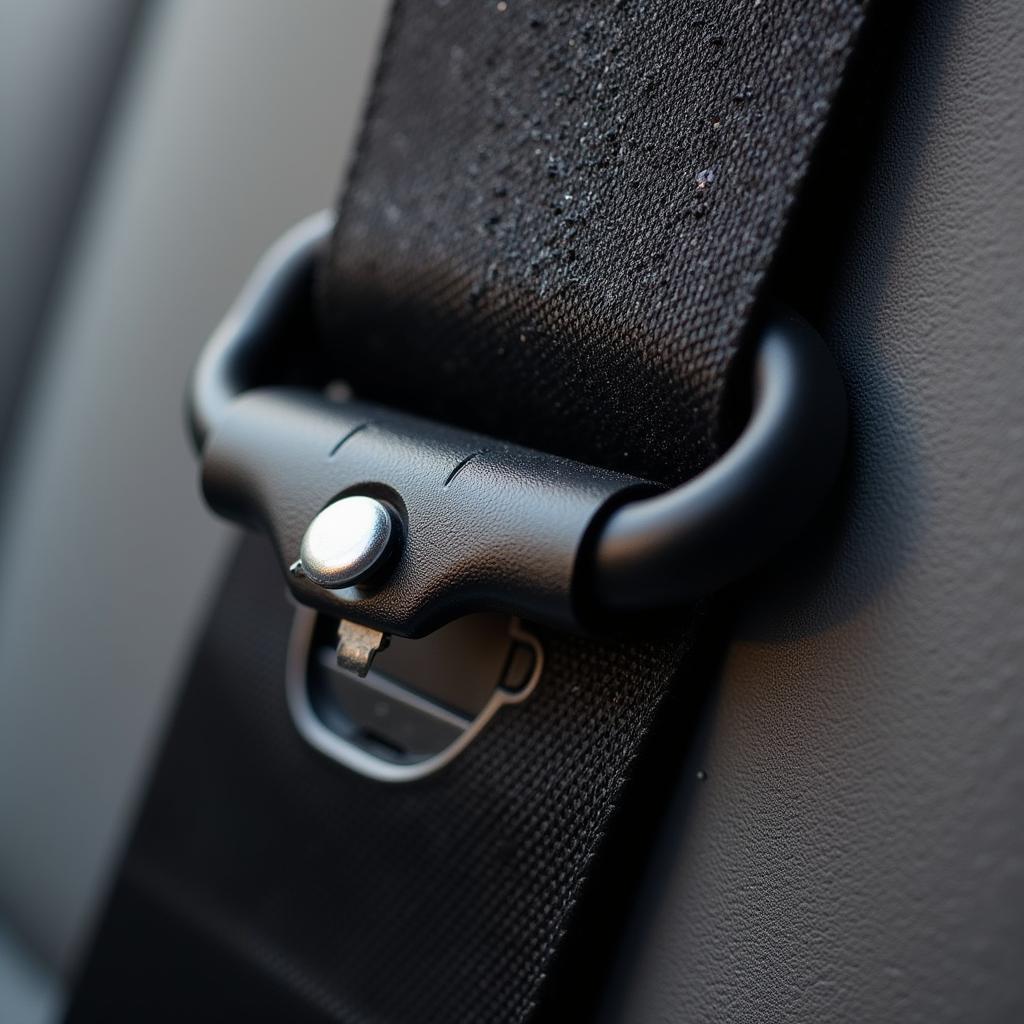The brake warning light on your Honda Accord’s dashboard is a crucial safety feature designed to alert you of potential braking system issues. When illuminated, it signals that something within the system requires attention. While it might seem alarming, understanding the common causes and solutions can empower you to address the problem effectively. This comprehensive guide will delve into the various reasons behind a Honda Accord brake warning light, troubleshooting steps, and potential solutions, providing you with the knowledge to get back on the road safely.
Understanding the Honda Accord Brake Warning Light
The brake warning light, often symbolized by a red circle with an exclamation mark (!) or the word “BRAKE,” can illuminate for various reasons:
-
Engaged Parking Brake: The most straightforward explanation is an engaged parking brake. Always ensure the parking brake is fully disengaged before driving.
-
Low Brake Fluid Level: One of the primary reasons for the brake warning light is low brake fluid. Brake fluid is vital for transmitting force from your foot to the brake pads, and a drop in fluid level indicates a potential leak or worn-out brake pads.
-
Worn Brake Pads: Brake pads have wear indicators that produce a screeching sound when they become too thin. If you ignore this sound and continue driving, it can lead to the brake warning light illuminating, indicating severely worn pads requiring immediate replacement.
-
Faulty ABS System: The Anti-lock Braking System (ABS) prevents wheel lockup during hard braking. A malfunction within the ABS system, such as a faulty sensor or control module, can trigger the brake warning light.
-
Brake Light Issues: Sometimes, a simple issue like a blown brake light bulb can cause the brake warning light to turn on. It’s essential to check all your brake lights and replace any faulty bulbs promptly.
Troubleshooting a Honda Accord Brake Warning Light
If your Honda Accord brake warning light illuminates, follow these steps to troubleshoot the issue:
-
Check Your Parking Brake: As mentioned earlier, ensure your parking brake is entirely disengaged. It’s a simple but often overlooked cause.
-
Inspect Brake Fluid Level: Safely park your car on a level surface, open the hood, and locate the brake fluid reservoir. Check the fluid level against the “MIN” and “MAX” markings. If the fluid is below the “MIN” mark, it needs topping up. However, low brake fluid often indicates a leak, which needs immediate professional attention.
-
Visually Inspect Brake Pads and Rotors: While not always easy to inspect without removing the wheels, try to look at your brake pads and rotors for signs of excessive wear. Deep grooves in the rotors or brake pads thinner than a quarter inch warrant a visit to a mechanic.
-
Listen for Unusual Noises: Pay attention to unusual noises while braking. Screeching or grinding sounds often indicate worn brake pads and require immediate attention.
-
Check Brake Lights: Ensure all your brake lights, including the third brake light, are functioning correctly. Replace any blown bulbs.
When to Seek Professional Help
While some causes of an illuminated brake warning light are simple to address, others require professional expertise. If you encounter any of the following, seek help from a qualified mechanic immediately:
-
Brake Fluid Leak: If you notice a leak in the brake system or the fluid level consistently drops, do not drive the car. This situation demands immediate professional attention.
-
Worn Brake Pads or Rotors: Driving with severely worn brake pads or rotors is incredibly dangerous. If you suspect this is the case, have a professional inspect and replace them.
-
ABS Warning Light: If the ABS warning light also illuminates alongside the brake warning light, it indicates a problem within the ABS system, requiring professional diagnosis and repair.
-
Unfamiliar Noises or Vibrations: Any unusual noises or vibrations while braking, such as grinding or pulsating, warrant immediate inspection by a mechanic.
Preventing Future Brake Warning Light Issues
Regular maintenance is key to preventing future brake warning light issues. Here are some preventive measures:
-
Regular Brake Fluid Checks and Changes: Check your brake fluid level regularly and have it flushed and replaced according to your Honda Accord’s maintenance schedule.
-
Timely Brake Pad and Rotor Replacement: Adhere to the recommended brake pad and rotor replacement intervals. Don’t ignore screeching sounds, as they indicate worn pads requiring immediate attention.
-
Inspect Brake Lines and Hoses: Regularly inspect brake lines and hoses for cracks, bulges, or leaks. Replace damaged components promptly.
-
Drive Smoothly: Avoid harsh braking whenever possible. Smooth driving habits can significantly extend the life of your brakes.
Conclusion
A glowing brake warning light in your Honda Accord should never be ignored. It’s a crucial safety indicator signaling potential issues within your braking system. While some causes, like an engaged parking brake or a blown brake light bulb, are simple to address, others require professional attention. By understanding the common causes, following the troubleshooting steps, and knowing when to seek professional help, you can ensure your Honda Accord remains safe to drive.
Remember, regular maintenance and timely repairs are vital to prevent unexpected brake problems and ensure your safety on the road.
Frequently Asked Questions (FAQs)
1. Can I drive my Honda Accord with the brake warning light on?
It’s highly discouraged. While driving short distances might be possible in certain situations, doing so with a compromised braking system poses a significant risk. It’s crucial to identify and address the underlying issue promptly.
2. How much does it cost to fix a Honda Accord brake warning light issue?
The cost can vary significantly depending on the underlying cause. A simple brake fluid top-up can be inexpensive, while replacing calipers or rotors can be significantly more expensive.
3. How often should I change my Honda Accord’s brake fluid?
Refer to your owner’s manual for model-specific recommendations. However, it’s generally advisable to have your brake fluid flushed and replaced every 2-3 years or as recommended by your mechanic.
4. Why is my Honda Accord brake warning light flashing?
A flashing brake warning light often indicates a more severe problem, often related to the ABS system. It’s crucial to have your car inspected by a qualified mechanic immediately.
5. Can I check and add brake fluid myself?
Yes, checking the brake fluid level is a simple process. You can top it up if needed. However, if you’re uncomfortable handling car fluids or suspect a leak, it’s best to consult a mechanic.


